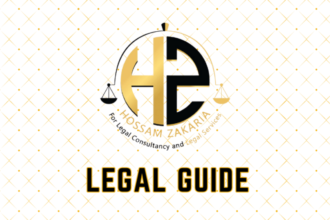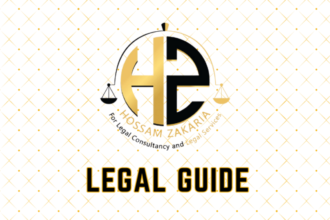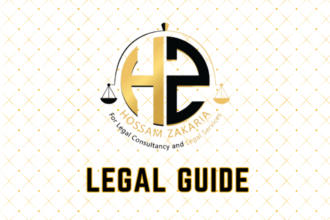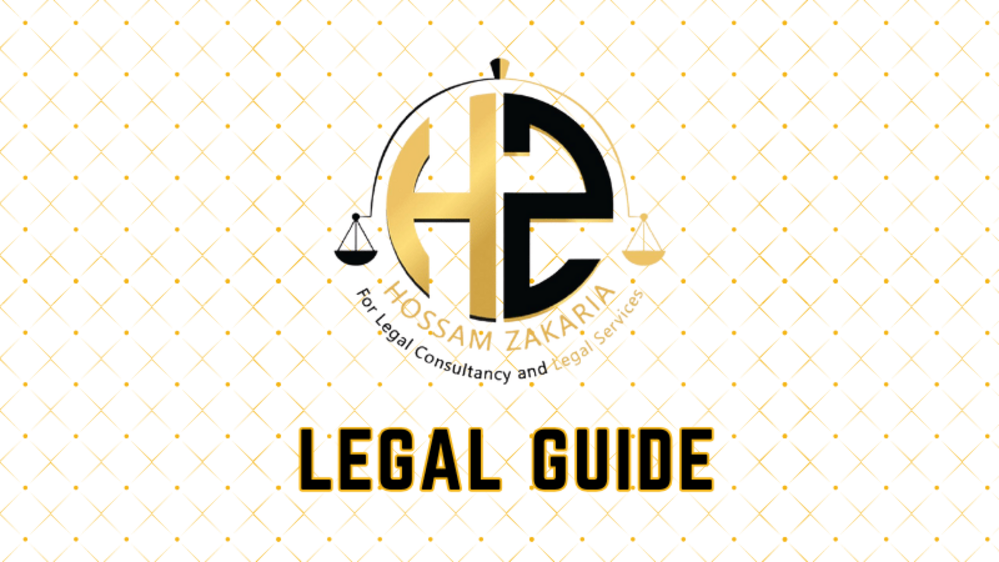Introduction: Why Agency and Distribution Contracts Matter Under UAE Law 2025
In the rapidly evolving commercial landscape of the United Arab Emirates, agency agreements and distribution contracts remain foundational pillars for doing business—both for international companies seeking market penetration and for local entrepreneurs fostering commercial growth. The legal frameworks governing these agreements shape how companies create partnerships, mitigate risks, and navigate disputes. Recent updates, such as the Federal Decree-Law No. 3 of 2022 (Commercial Agencies Law), amended by Federal Decree-Law No. 11 of 2023, directly impact how businesses structure their agency and distribution arrangements in 2025. In a market defined by dynamic regulatory reform, understanding the distinction between agency and distribution models, provisions for exclusivity, compliance requirements, and dispute resolution mechanisms is crucial.
This in-depth legal analysis equips executives, HR managers, legal practitioners, and business owners with the strategic insights needed to structure robust commercial relationships, anticipate regulatory shifts, and avoid costly legal pitfalls. We provide professional guidance on navigating 2025’s updated legal environment, referencing verified UAE legal sources including the UAE Ministry of Justice and the UAE Government Portal. This article analyzes recent legal updates, compares key provisions with previous regulations, and presents actionable compliance strategies tailored to the current UAE business setting.
Table of Contents
- Legal Framework and Recent Developments
- Agency vs. Distribution: Definitions and Scope in UAE Law
- Core Provisions of Agency and Distribution Contracts
- Comparative Analysis: Pre-2022 vs. 2025 Legal Frameworks
- Structuring Effective Contracts: Practical Insights and Best Practices
- Case Studies and Hypothetical Scenarios
- Risks of Non-Compliance and Proactive Compliance Strategies
- Key Takeaways, Forward Perspective, and Recommendations
Legal Framework and Recent Developments
Understanding the Regulatory Landscape
The UAE commercial environment is characterized by a robust regulatory structure adapting to globalisation while safeguarding local interests. The key statutes relevant in 2025 for agency and distribution contracts are:
- Federal Decree-Law No. 3 of 2022 regarding Commercial Agencies (as amended by Federal Decree-Law No. 11 of 2023)
- UAE Civil Code (Federal Law No. 5 of 1985), particularly articles relating to contracts and obligations
- UAE Commercial Transactions Law (Federal Law No. 18 of 1993)
- Cabinet Decision No. 57 of 2022 on implementing regulations for the new Commercial Agencies Law
The UAE Ministry of Justice and the Federal Legal Gazette publish authoritative legal texts, and the UAE Government Portal provides compliance guidance.
Impact of 2022–2023 Amendments
The 2022-2023 legislative reforms modernised the commercial agencies regime, introducing new registration requirements, dispute mechanisms, and clarified the distinction between agency and distribution arrangements. Key changes include:
- Liberalisation of registration criteria allowing 100% foreign ownership for certain agency agreements (with Cabinet approval)
- Revamped termination mechanisms, including new notice periods and compensation structures
- Enhanced dispute resolution: parties may now opt for arbitration over litigation
- Clear demarcation between exclusive and non-exclusive commercial agency rights
Grasping the implications of these reforms is crucial for drafting enforceable agreements and mitigating risk in 2025.
Agency vs. Distribution: Definitions and Scope in UAE Law
Agency Agreements: Legal Definition and Features
An agency agreement under the UAE Commercial Agencies Law establishes a contractual relationship in which a principal (often a foreign manufacturer) appoints a UAE-based agent (individual or entity) to promote, distribute, or sell goods and services within the UAE. Key regulatory requirements include:
- Exclusive Registration: Agencies must be registered with the UAE Ministry of Economy to offer statutory protections.
- Nationality: Traditionally, agents had to be UAE nationals or wholly owned UAE companies; as of the 2023 update, exceptions apply for some sectors allowing foreign majority ownership.
- Exclusivity: Registered agencies generally grant the agent exclusive rights within the UAE or agreed territories.
- Remuneration: Typically commission-based, even for direct sales by the principal.
Distribution Contracts: Key Characteristics
In contrast, distribution contracts are commercial arrangements where a distributor purchases goods from the supplier for resale in the UAE, acting in their own name and for their own account. Notable differences from agency agreements include:
- No mandatory registration with the Ministry of Economy
- Greater contractual flexibility
- No statutory exclusivity or termination protections under UAE law—terms are governed by the contract and general principles in the Civil Code
Understanding this distinction is vital for businesses considering market strategies, risk tolerance, and dispute resolution options.
Core Provisions of Agency and Distribution Contracts
Essential Clauses Under UAE Law 2025
Whether drafting new contracts or reviewing existing arrangements, certain provisions are critical for legal compliance and risk mitigation. The following table summarises key clauses and their legal implications in 2025:
| Clause | Agency Agreement (Registered) | Distribution Agreement |
|---|---|---|
| Registration | Mandatory with Ministry of Economy | Not required |
| Exclusivity | Typically exclusive by law or contract | Subject to negotiation |
| Termination | Statutory notice; compensation rules apply (see 2023 amendment) | Contractual; limited statutory protection |
| Remuneration | Commission (often on all sales, direct or indirect) | Margin/profit from resale |
| Dispute Resolution | Arbitration or litigation as agreed; statutory mechanisms | Contractual freedom; typical rules apply |
Termination, Renewal, and Compensation
The 2022–2023 reforms redefined termination protocols. For registered agencies:
- Notice Period: Parties must provide written notice (up to one year), as stipulated by law or contract, before termination or non-renewal.
- Compensation: Agents may be entitled to compensation for unjustified termination or non-renewal, calculated based on performance, investments, and duration.
- Arbitration Option: Disputes may be referred to arbitration, expediting resolutions and providing confidentiality—an important shift from previous mandatory litigation through UAE courts.
For distribution contracts, parties enjoy greater freedom to structure terms on notice and compensation but must avoid clauses that may be interpreted as covert agency arrangements, which could trigger statutory protections inadvertently.
Comparative Analysis: Pre-2022 vs. 2025 Legal Frameworks
Understanding changes between legacy and current regulations enables businesses to identify new opportunities and compliance risks. The table below highlights key differences:
| Aspect | Pre-2022 Law | 2022–2025 Reforms |
|---|---|---|
| Foreign Agency Ownership | Restricted to UAE nationals or 100% UAE-owned entities | Permits foreign-owned agents (with Cabinet approval in designated sectors) |
| Termination Rights | Near-impossibility of termination absent mutual consent or valid cause | Structured termination with defined notice, enhanced compensation; possibility of non-renewal |
| Dispute Resolution | Mandatory recourse to UAE courts and specialized committee | Arbitration permitted by mutual agreement |
| Registration Process | Rigid, limited exceptions | More flexible registration, subject to regulatory oversight |
Visual suggestion: Compliance checklist table specifying 2025 statutory requirements and documentation for agency registration.
Structuring Effective Contracts: Practical Insights and Best Practices
Agency Models: Tailoring Agreements to Regulatory Realities
In 2025, thorough due diligence is essential before entering agency relationships. Suggested best practices include:
- Verify registration requirements: ensure eligibility for Ministry of Economy registration, especially for foreign-owned agents.
- Assess market exclusivity: clearly define territorial exclusivity to avoid future disputes.
- Specify remuneration rationale: commission formulae should comply with industry standards and ensure mutual transparency.
- Mitigate termination liability: stipulate objective grounds for termination and detailed notice/compensation rules.
- Choose dispute resolution mechanisms: consider confidentiality and efficiency of arbitration vs. court processes.
- Audit renewal and succession rights: anticipate business continuity or transfer implications upon expiry or legal changes.
Failure to rigorously document these aspects commonly results in regulatory investigation or costly litigation.
Distribution Agreements: Flexibility, but with Caution
- Negotiate exclusivity intentionally: weigh commercial strategy against competition law and resale value.
- Determine clear delivery and risk transfer terms: avoid ambiguity over when title and liability pass.
- Build robust intellectual property protections: shield principal’s trademarks and confidential information.
- Address gray market and parallel imports: prohibit unauthorized channels where feasible under local law.
- Review anti-competition compliance: especially for suppliers with market power, to prevent inadvertent breaches of UAE competition law.
Note that, while distribution contracts offer contractual agility, poorly drafted agreements risk recharacterisation as agencies, triggering statutory protections for the local party.
Documentation Checklist: Agency Agreements (2025)
| Document | 2025 Requirement |
|---|---|
| Original Agency Contract | Signed and notarized in the UAE |
| Commercial Registration of Agent | Valid UAE or Cabinet-approved foreign entity |
| Product List/Description | Detailed, with HS codes where required |
| Power of Attorney | For authorized signatories |
| Ministry of Economy Registration Forms | As per current Ministry guidelines |
Case Studies and Hypothetical Scenarios
Case Study 1: Foreign Manufacturer Seeks UAE Entry Post-2023
A European electronics company seeks to appoint a foreign-owned commercial agent under the 2023 law. After sector eligibility confirmation, they secure Cabinet approval and register the agency agreement with the Ministry of Economy. Their exclusive UAE agent can now lawfully market and sell products, enjoying full statutory protections against unjustified termination. The manufacturer negotiates limited compensation terms and favors arbitration for disputes, reflecting modernized compliance strategy.
Case Study 2: Transition from Legacy to 2025 Framework
A UAE-based FMCG distributor had operated for years under an unregistered “distribution” agreement that, in reality, carried agency-like features (control over pricing, marketing, and territory). With increased scrutiny under the revised law, the supplier regularizes its arrangement, opting for a registered agency partnership to avert regulatory challenge. New contract terms ensure proper registration, define exclusivity boundaries, and clarify the commission structure.
Hypothetical: Termination and Dispute
A US principal wishes to terminate its registered UAE agent, citing performance concerns. The contract references a six-month notice period and provides for compensation based on average annual commissions. The agent disputes the grounds and invokes the contract’s arbitration clause. Thanks to the 2023 reforms, the parties proceed to arbitration, reaching a confidential, binding resolution—avoiding the delays previously endemic to court-driven processes.
Risks of Non-Compliance and Proactive Compliance Strategies
Risks in 2025 UAE Law Environment
Non-compliance with the current statutes invites a spectrum of commercial and reputational risks:
- Invalidation of Agreements: Unregistered agency contracts lose statutory protections and may be unenforceable in disputes.
- Compulsory Compensation: Principals may be forced to pay substantial damages for wrongful termination or non-renewal.
- Regulatory Inquiry and Fines: Breaches detected by the Ministry of Economy can lead to penalties, suspension, or cancellation of commercial licenses.
- Market Disruption: Ambiguous contractual terms risk business continuity and asset protection (e.g., loss of exclusive territorial rights).
Visual suggestion: Insert a penalty comparison chart outlining key non-compliance fines and potential compensation amounts under 2025 law.
Proactive Strategies for Legal Compliance
- Audit historical agreements to ensure alignment with current law; update contracts where legacy terms are no longer compliant.
- Maintain up-to-date registration documents and proactively liaise with the Ministry of Economy for sector-specific updates.
- Train contract management teams on the 2022–2023 reforms, emphasizing revised termination, compensation, and dispute mechanisms.
- Use due diligence checklists before entering UAE market strategies to avoid misclassification and regulatory exposure.
- Engage UAE legal counsel for bespoke drafting, especially for high-value or cross-border arrangements.
Key Takeaways, Forward Perspective, and Recommendations
The ongoing modernisation of the UAE’s commercial agency and distribution law—capped by the 2022 and 2023 legislative reforms—has reshaped the operational landscape for all market participants. These updates foster a competitive environment that encourages foreign investment, upholds local interests, and rewards diligent compliance. For businesses, proactive understanding and adaptation of agency and distribution contracts are not optional but essential for sustained commercial success.
Looking forward, organizations must:
- Monitor statutory changes and Ministry of Economy guidance as the UAE continues to globalise its commercial regulations.
- Regularly review and refine agency and distribution agreements using best practices illustrated above.
- Leverage arbitration and other modern dispute mechanisms for efficient, confidential resolution.
By embracing legal updates and integrating expert counsel into their commercial contracting processes, clients can avoid risk, capitalise on new market opportunities, and contribute to the UAE’s vision for a diversified, innovation-driven economy. Legal compliance is the bedrock of robust and sustainable business partnerships in the UAE for 2025 and beyond.



